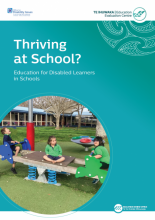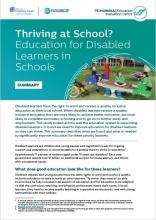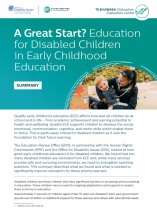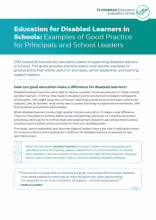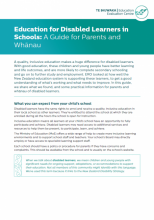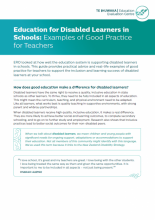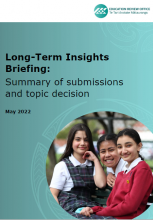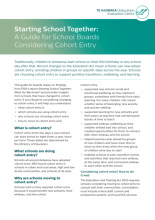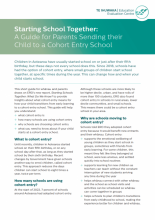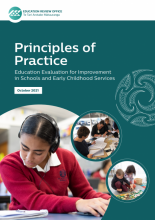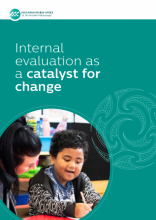Thriving at school? Education for disabled learners in schools
The Education Review Office (ERO), in partnership with the Human Rights Commission (HRC) and the Office for Disability Issues (ODI), looked at how well the education system is supporting disabled learners in schools. We found that we need to improve education for disabled learners so they can thrive. This report describes what we found and what is needed to significantly improve education for these priority learners.
